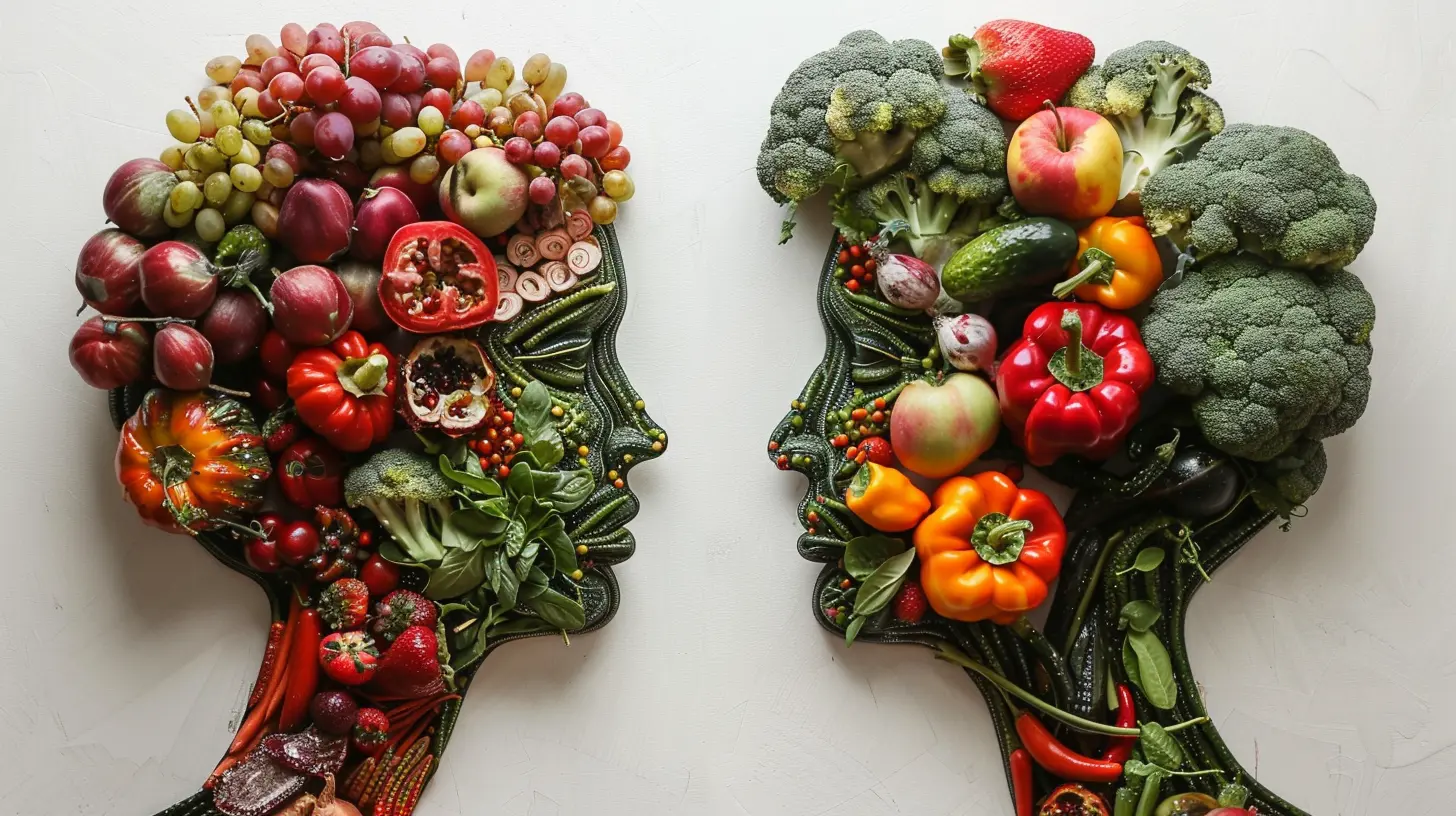Mindful Eating: Nurturing Your Body and Mind Through Food
12 October 2025
Let’s face it: most of us have eaten an entire bag of chips without realizing it, or stared into the fridge hoping for a snack that magically appears (spoiler alert: it never does). In today’s fast-paced, food-on-the-go world, eating has turned into a reflex rather than a ritual. Enter mindful eating—a way to hit pause, chew slowly, and reconnect with your relationship with food (without needing to chant “ohm” over your oatmeal).
Whether you’re stress-snacking during work meetings or spoon-deep in ice cream wondering what emotions you’re actually trying to process, this guide is here to help you understand how slowing down at the table can make a big difference in both your body and mind.
What is Mindful Eating Anyway?
Mindful eating isn’t a fad diet or a trendy cleanse—it’s more like giving your meals the attention they deserve. At its core, it’s about being present when you eat. That means tuning in to how your food looks, smells, tastes, and feels, without letting your brain wander into email mode or TikTok territory.Think of it this way: if your meals had feelings (and thank goodness they don’t), they’d want to be acknowledged. Mindful eating says “Hey, you matter” to your food and “Hey, I matter” to your body.
The Psychology Behind It
Rooted in Buddhist teachings and supported by modern psychology, mindful eating is linked to mindfulness itself—the practice of being aware in the present moment. It's not just about eating slower, it’s about putting the fork down between bites and checking in with your hunger cues. Are you really hungry? Or just bored? Or maybe just sad because your favorite show ended?This simple awareness alters your eating habits in powerful ways.
Why Mindful Eating is a Game-Changer
It’s not just fluff. Science has jumped on the mindful-eating bandwagon, and for good reasons:1. You Actually Taste Your Food
Seriously. When was the last time you truly tasted your lunch instead of inhaling it between Zoom calls? Mindful eating turns your average sandwich into a five-star experience (well, almost).2. You Can Prevent Overeating
By paying attention to your body’s hunger and fullness signals, you’re less likely to eat until you resemble a stuffed turkey on Thanksgiving. Your stomach knows when it’s done—it’s your brain that sometimes doesn’t get the memo.3. You Create a Healthier Relationship With Food
Food isn’t the enemy. It’s not something to fear, punish yourself with, or reward yourself with like a toddler who cleaned their room. Mindful eating transforms your inner food police into a wise, intuitive, kind eating guru.4. It Reduces Emotional Eating
Raise your hand if you've ever demolished an entire pizza because life felt overwhelming. (No judgment here—we've all been on that cheesy path.) Mindful eating helps you pause and ask, “Am I really hungry—or just having a rough day?”
The Main Ingredients of Mindful Eating
Okay, so how do you actually do this mindful eating thing? You're not expected to meditate between every bite (unless that’s your jam). Here's a bite-sized breakdown of what it involves:1. Slow Down
No more speed-eating contests with yourself. Take your time. Put the fork down between bites. Chew. Savor. Repeat. Think of it like a romantic dinner—with yourself.2. Ditch the Distractions
TV, phones, laptops, emails—give them all the boot. If scrolling Instagram while eating was good for digestion, we’d all be Zen ninjas by now. Spoiler alert: we’re not.3. Engage Your Senses
Smell the aroma. Notice the colors. Listen to the crunch. Taste the flavors. Even touch the texture (okay, maybe not with spaghetti). Eating is a full-on sensory party.4. Honor Your Hunger—and Respect Fullness
Sounds simple, but it takes practice. Know when you're truly hungry and when you're comfortably full. There's magic in listening to those cues.5. Be Curious, Not Judgy
This isn’t about perfection. If you accidentally zoned out halfway through your burrito, that’s okay. Mindful eating is about curiosity, not criticism.
The Mind-Body Connection: It’s Kind of a Big Deal
Mindful eating isn't just about the stomach—it’s a full-body experience. Your mind, emotions, and gut are all on this ride together.Mood Swings Meet Their Match
When you eat with awareness, you start noticing patterns. Like the fact that sugar binges on stressful days leave you feeling like a hangry raccoon. That insight helps you shift your coping strategy (maybe toward journaling or a quick walk—crazy, I know).Gut Health Gets a Glow-Up
Believe it or not, how you eat can affect digestion just as much as what you eat. Eating mindfully reduces stress in your gut, prevents bloating, and helps nutrients absorb better. Win-win.How to Start—Without Going Full Buddha
Alright, now the goods: how do you actually start eating more mindfully... without turning every meal into a spiritual retreat?Start Small
Pick one meal a day to practice. No pressure. Breakfast is a great candidate—less chance of distractions and drama.Ask Simple Questions
Before you eat, ask:- Am I really hungry?
- What does my body need right now?
- How do I feel emotionally?
After eating, reflect:
- How full am I?
- How do I feel physically and mentally?
Keep a Mindful Eating Journal
Not a food diary (ugh, flashbacks from fad diets), but a casual log of your sensations, emotions, and observations at mealtime. It’s like detective work, but with snacks.Use All Your Senses
Before digging in, take a moment to look at your food. Appreciate the texture. Smell it. Experience the colors. Then taste slowly. It’s like flirting with your food.Practice Gratitude
No need to write a thank-you note to your sandwich, but a quick acknowledgment of the effort behind your meal—whether by farmers, chefs, or your own tired hands—can boost the mindful vibes.Busting Common Myths About Mindful Eating
Let’s clear the plate of some common misconceptions:“I Don’t Have Time for That!”
Honestly, mindful eating can take the same amount of time—or less—when you’re not stuffing yourself or distracted. It’s not about stretching lunch into a two-hour affair, it’s about squeezing in presence, not minutes.“I’ll Lose Weight If I Eat Mindfully, Right?”
Maybe. Maybe not. Mindful eating isn’t a weight-loss program. It’s a way to prioritize how you feel over how you look. If weight loss happens, cool. But that’s not the goal.“Healthy Food Only, Right?”
Nope! Mindful eating isn’t about eating kale 24/7. It’s about eating whatever you choose—chocolate included—with awareness, joy, and intention.Mindful Eating in Real Life: Let’s Get Practical
You might wonder, “Okay, but what does this really look like on a day-to-day basis?” Here’s a peek:Morning: The Mindful Muffin
You sit down with a blueberry muffin and coffee. Before diving in, you take a breath. You notice the pillowy texture, the sweet aroma. You chew slowly, tasting the burst of berries. No phone, just you and muffin bliss.Afternoon: The Conscious Cravings Check-In
It’s 3 PM and you're eyeballing cookies. You pause: “Am I hungry or just stressed?” You realize you skipped lunch and your stomach’s actually growling. You opt for a proper snack because your body deserved better than an emotional sugar band-aid.Evening: The Dinner Wind-Down
After a long day, you sit down to your favorite meal. You put on soft music, plate your food nicely, and resist the urge to multitask. You enjoy the flavors, check in with your fullness, and feel satisfied without needing a second helping.The Psychological Perks Nobody Talks About
Beyond digestion and satisfaction, mindful eating can seriously shift your mindset.- It builds self-trust—you learn to listen to your body and believe it knows best.
- It enhances self-awareness—you realize how emotional states affect your eating.
- It fuels self-compassion—you stop beating yourself up for comforting cravings.
And honestly? That’s mental health magic right there.
Mindful Eating Isn’t About Perfection—It’s About Connection
Let’s get one thing straight: you’re going to have days where you eat a burrito while emailing your boss and watching Netflix. That’s life. Mindful eating isn’t about nailing it every time—it’s about noticing the difference, and choosing to be present whenever you can.It’s about healing your relationship with food, rediscovering the joy of a good meal, and realizing that nourishment goes way beyond calories and carbs. Your body is wise. Your mind is powerful. And food? It’s your ally—not your enemy.
So the next time you're about to scarf down lunch while doom-scrolling, just pause. Take a breath. And let that first bite be a delicious act of mindfulness.
Bon appétit, friends.
all images in this post were generated using AI tools
Category:
Self CareAuthor:

Paulina Sanders
Discussion
rate this article
1 comments
Heath Cain
Mindful eating promotes awareness and balance, fostering a healthy relationship with food and self.
November 3, 2025 at 4:05 AM

Paulina Sanders
Thank you! I'm glad you resonate with the idea of mindful eating—it truly enhances our connection to food and ourselves.


